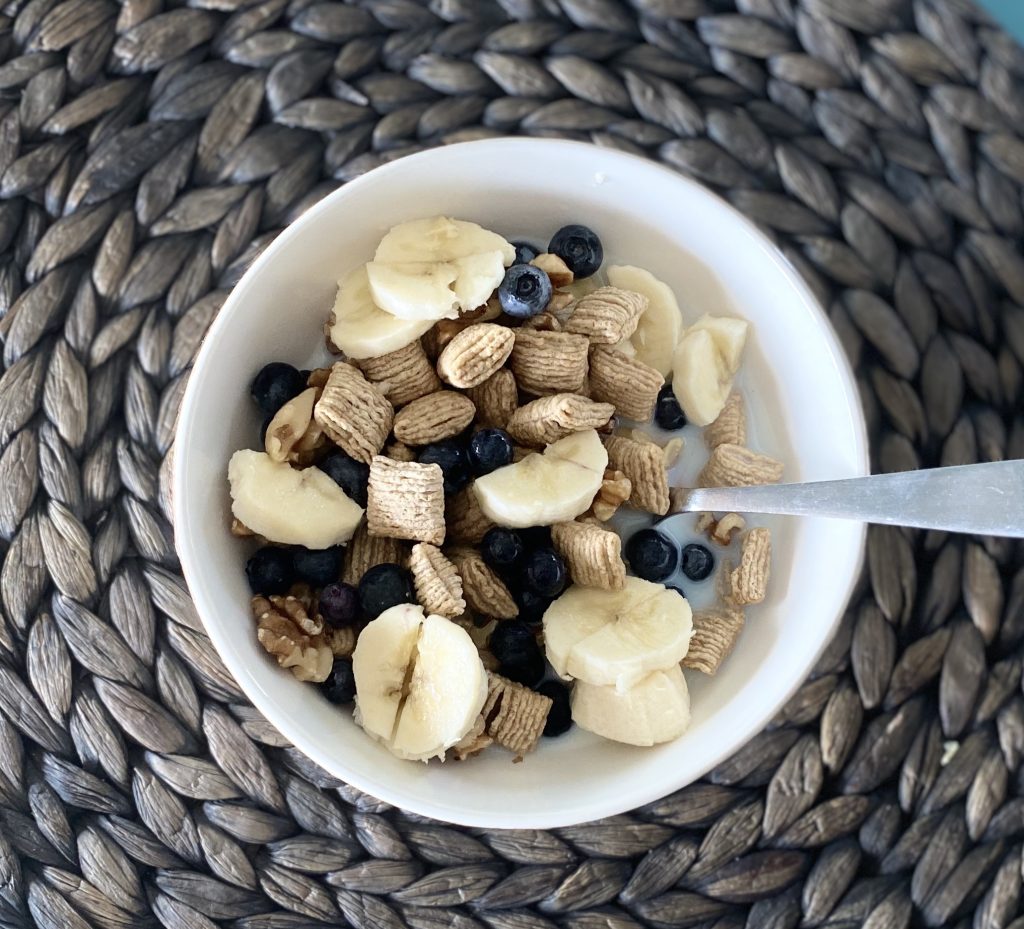
I recently had a client ask, “How do I balance eating with awareness of the effect of hormones on my body?” and “Do I need to work on eating some foods versus others?” I thought this was a great question and I figured likely a common one.
Hormones impact many different physical, mental, and emotional functions in our bodies, including digestion, metabolism, hunger and fullness, sleep, movement, reproduction, and immunity. No matter how old we are or whether we are male or female, hormones play a huge role in our health and overall well-being and when they are out of whack it can impact many different facets of our lives. The choices we make around food and other behaviors like movement, stress management, and sleep can all impact our hormones.
Here are a few things you can do to manage your hormone levels by making a few tweaks to your routine.
1. Eat Balanced Meals and Snacks When You Are Hungry
Eating meals and snacks with a combination of some higher fiber complex carbs, some healthy fat, and some protein regularly throughout the day based on hunger levels can help balance many different hormones. Higher fiber complex carbs are broken down more slowly than more refined carbs which helps to balance blood sugars and insulin levels and stimulate the production of hormones that make you feel full and satisfied. Healthy fats can also help to improve insulin sensitivity and trigger the release of hormones that help you feel full and satisfied – including GLP-1, PYY, and cholecystokinin. Protein is also important in this picture of balance and we will get to that next. Aim to get a balance of nutrients at meals and snacks.
2. Get Some Protein with Your Meals
Protein provides essential amino acids that your body can't make on its own and is important for many body processes including maintaining muscle, building bone, and skin health. Protein also influences hormones that control appetite. Eating protein decreases levels of the hunger hormone ghrelin and stimulates PYY and GLP-1, two hormones that promote satiety, aka a feeling of fullness. Aim to get some protein “ eggs, nuts, poultry, seafood, beans, dairy “ at each meal.
3. Move Your Body Regularly
Movement is beneficial in countless ways, one of them being a positive impact on hormone levels. Being physically active can help to stabilize blood sugars and insulin levels and increase insulin sensitivity. Insulin is a vital hormone that allows our cells to use food and its breakdown products for energy. But when insulin levels are too high our bodies can become insulin resistant “ cells don't respond to insulin's signals. Moving our bodies helps increase insulin sensitivity and reduce insulin levels. Movement also boosts levels of muscle-maintaining hormones that naturally decrease with age, such as testosterone, IGF-1, DHEA, and growth hormone. Any and all kinds of movement are beneficial. Aim to find ways to move your body that you enjoy and do it regularly.
4. Get Plenty of Good Quality Sleep
Balancing hormones is about more than just food and movement. Poor quantity or quality of sleep has also been linked to imbalances in levels of many different hormones, including insulin, cortisol (the stress hormone), leptin, ghrelin, and growth hormone. Aim for at least seven hours of high-quality sleep per night. Avoid having caffeinated drinks and heavy meals before bedtime. You can also keep a 7-day sleep diary to bring awareness to your habits that impact your sleep, like the one found here: https://pa-foundation.org/wp-content/uploads/NSF-Sleep-Diary.pdf
5. Manage stress
Stress and our busy, overwhelming lifestyles can have a huge impact on our hormones. Specifically, the stress hormone cortisol and the fight-or-flight hormone adrenaline are two hormones triggered by stress. The elevated levels of these hormones due to our chronic everyday high stress levels (especially in our new normal of Covid-19) can raise our risk for increased blood pressure, rapid heart rate, and anxiety. Aim to engage in stress reduction behaviors like meditation, yoga, massage, listening to soothing music, or whatever activities you find are relaxing to you to help normalize levels of stress hormones.
We often lean towards extreme or quick fixes when we want to make positive changes in our health, but what we know is those types of changes rarely last long term and can actually end up being more harmful than helpful.
If you have questions or aren’t quite sure how to put these suggestions into practice let me know. This is what I do with clients. I help them incorporate better self-care to improve their health and well-being in gradual ways that work with their lifestyle. No fads, no diets just help with approaching food and your body in a positive way to improve health long term.

0 Comments